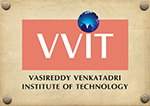Program Educational Objectives (PEOs)
The Programme Educational Objectives of the B. Tech in Information Technology programme are given below and are numbered from PEO1 to PEO4.
PEO-1: Solid Foundation and Core competence
To provide the graduates with concrete base in Information Technology, to pursue higher studies and to succeed in industry / technical profession with global competence by imparting acute technical skills like designing, modelling, analyzing and problem-solving on top of solid foundation in mathematical, scientific, computing and engineering fundamentals
PEO-2: Employability & Research Spur
To train the graduates for a higher degree of employability in both public and private sector industries at national and international level by imparting ability to Re-learn and innovate in ever-changing global economic and technological environments and to contribute effectively in research and development.
PEO-3: Professional Skills and Societal Contribution
To inculcate the graduates to have basic interpersonal skills, effective communication skills to teamwork/ lead in multidisciplinary approach, under diverse professional environments by handling critical situations through lifelong learning with an ethical attitude( administrative acumen) and an ability to relate engineering issues to broader social context.
PEO-4: Real World Competency & Innovation
To enable students with good scientific and engineering breadth and technology skills so as to comprehend, analyze, design, and create novel products and solutions for the real life problems to emerge as researchers, experts, educators & entrepreneurs
Program Outcomes (POs)
The B.Tech IT programme has documented measurable outcomes that are based on the needs of the programme’s stakeholders. The programme outcomes which are derived from ABET criteria are first drafted in the academic year 2009-10 and later revised in 2010-11. The programme outcomes that the department presently adapts to are as follows:
Engineering knowledge: Apply the knowledge of mathematics, science, engineering fundamentals and an engineering specialization to the solution of complex engineering problems.
Problem analysis: Identify, formulate, review research literature, and analyze complex engineering problems reaching substantiated conclusions using first principles of mathematics, natural science and engineering sciences.
Design/development of solutions: Design solutions for complex engineering problems and design system components or processes that meet the specified needs with appropriate consideration for the public health and safety, and the cultural, societal and environmental considerations.
Conduct investigations of complex problems: Use research based knowledge and research methods including design of experiments, analysis and interpretation of data, and synthesis of the information to provide valid conclusions.
Modern tool usage: Create, select and apply appropriate techniques, resources and modern engineering and IT tools including prediction and modelling to complex engineering activities with an understanding of the limitations.
The engineer and society: Apply reasoning informed by the contextual knowledge to assess societal, health, safety, legal and cultural issues and the consequent responsibilities relevant to the professional engineering practice.
Environment sustainability: Understand the impact of the professional engineering solutions in the societal and environmental contexts, and demonstrate the knowledge of, and need for sustainable development.
Ethics: Apply ethical principles and commit to professional ethics and responsibilities and norms of the engineering practice.
Individual and Team work: Function effectively as an individual and as a member or leader in diverse teams, and in multidisciplinary settings.
Communication: Communicate effectively on complex engineering activities with the engineering community and with society at large, such as, being able to comprehend and write effective reports and design documentation, make effective presentations, and give and receive clear instructions.
Project management and finance: Demonstrate knowledge and understanding of the engineering and management principles and apply these to one’s own work, as a member and leader in a team, to manage projects and in multidisciplinary environments.
Lifelong learning: Recognize the need for, and have the preparation and ability to engage in independent and lifelong learning in the broader context of technological change.
Program Specific Outcomes (PSOs)
2. PSO2: Successful Career and Entrepreneurship:The ability to embark on research & development after mastering modern computer languages, environments and platforms by pursuing higher education, to manage an IT Infrastructure in a qualitative manner.


